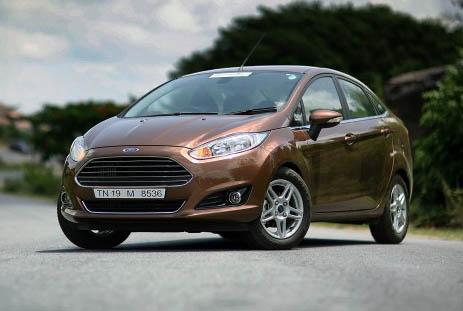
BENGALURU - Automotive major Ford Wednesday announced that it would pilot a share-car project here to create a model for easy vehicle sharing among small communities such as office workers, apartment dwellers and families. "We will test the sharing concept in Bengaluru that would allow small groups, such as co-workers, apartment dwellers and families to share a vehicle among multiple drivers," the company said in a statement on...

its smart mobility plan and 25 global experiments, it flagged at the ongoing 2015 Consumer Electronics Show in Las Vegas in the US. The share-car approach will help consumers who can't afford a car but want benefits of owning one.
"Our researchers plan to develop a model for vehicle scheduling and managing ownership," Ford chief executive Mark Fields said.
Noting that the experiments were designed to change the way the world moves, Fields said the auto major would test new ideas and address growing transportation challenges. "We are driving innovation in every part of our business to be a product as well as a mobility company and, ultimately, to change the way the world moves just as our founder Henry Ford did 111 years ago," Fields said. Of the 25 experiments, eight will be conducted in North America, nine in Europe and Africa, seven in Asia and one in South America, as they are designed to anticipate what customers will want and need in tomorrow's transportation ecosystem. "We see a world where vehicles talk to one another, drivers and vehicles communicate with the city infrastructure to relieve congestion, and people share vehicles or multiple forms of transportation for their daily commute," Fields said. The experiments will address four global megatrends - explosive population growth, an expanding middle class, air quality and public health concerns and changing customer attitudes and priorities, which challenging today's transportation model and limiting personal mobility, especially in urban areas.
"Our researchers plan to develop a model for vehicle scheduling and managing ownership," Ford chief executive Mark Fields said.
Noting that the experiments were designed to change the way the world moves, Fields said the auto major would test new ideas and address growing transportation challenges. "We are driving innovation in every part of our business to be a product as well as a mobility company and, ultimately, to change the way the world moves just as our founder Henry Ford did 111 years ago," Fields said. Of the 25 experiments, eight will be conducted in North America, nine in Europe and Africa, seven in Asia and one in South America, as they are designed to anticipate what customers will want and need in tomorrow's transportation ecosystem. "We see a world where vehicles talk to one another, drivers and vehicles communicate with the city infrastructure to relieve congestion, and people share vehicles or multiple forms of transportation for their daily commute," Fields said. The experiments will address four global megatrends - explosive population growth, an expanding middle class, air quality and public health concerns and changing customer attitudes and priorities, which challenging today's transportation model and limiting personal mobility, especially in urban areas.

 RSS Feed
RSS Feed
